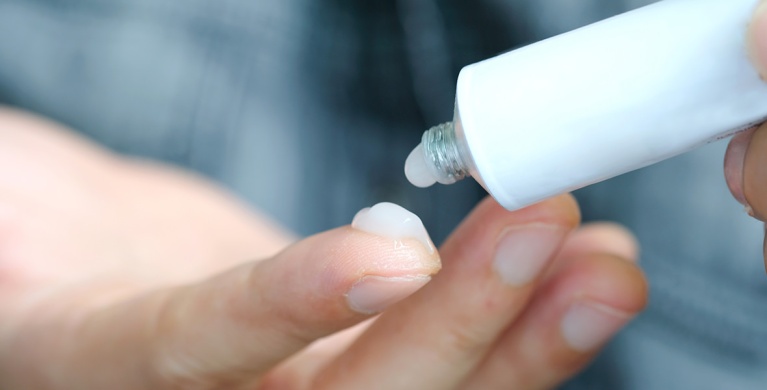

What does the future have in store? The possible progression of atopic eczema

When you see your child scratching and the damage to their skin, it is nice to know that you can provide them with soothing relief from eczema by adopting a few helpful habits. Isn’t that already a great relief?
Naturally, you may be wondering what happens next: how will their flare-ups evolve over time? Is eczema a lifelong condition?
You can put your mind at ease!
Because flare-ups do go away in most cases. Even better, they will likely do so without leaving a trace. In some cases, eczema can become chronic and lead to very rare complications, but for the vast majority of children, atopic eczema is a temporary condition.
What is the progression of eczema? There are three main progressions that can unfold over a person’s life.
Atopic eczema goes away The most common outcome
As is often said, atopy is not for life. In all likelihood, your child’s eczema is temporary and will be gone by the time they enter their teens. Sometimes, it subsides at a much younger age, by the time they are about two years old.
In approximately 90% of childhood eczema cases, flare-ups go away after a few years. These figures are just an estimate and are constantly changing, but scientists agree that, for most people, atopic eczema is a temporary condition.
Flare-ups become less frequent, but eczema persists Uncommun
This scenario is less common, but atopic eczema can linger. For example, your child may go through their teens without a single flare-up, just to see a resurgence as an adult. Flare-ups may become rare over the years but without ever going away completely. Fortunately, they often remain mild, and a wide range of solutions are available to alleviate flare-ups.
What should you do if atopic eczema continues or returns in adolescence? Consult with your doctor, who is the only person qualified to give you advice. Your doctor will likely prescribe a treatment (topical corticosteroids, topical immunomodulators, etc.).
Other atopic disorders appear Uncommun
These diseases are sort of like cousins of atopic eczema in that they are also manifestations of this hypersensitivity known as atopy. If your child has atopic eczema, they have atopic skin. It is thus possible for other symptoms to appear later on, such as asthma (in which case atopy symptoms affect the breathing rather than the skin), which is part of the extended atopy family.
The sequential onset of these disorders is known as the “Atopic March”. This term refers to the successive and “predictable” development of atopic diseases: starting with atopic eczema, then asthma, and finally rhinoconjunctivitis. Sometimes, these manifestations alternate, or progress simultaneously. However, your child may have eczema without ever triggering the Atopic March.
Eczema complications are fortunately very rare!
Atopic eczema is uncomfortable, but not serious in most cases. Nonetheless, it damages the skin, and scratching doesn’t help. Although rare, complications may occur. Eczema can become widespread or lead to an infection or superinfection (bacterial or viral). This is why it is important to avoid scratching. Another tip is to keep your nails short to eliminate any risk!

